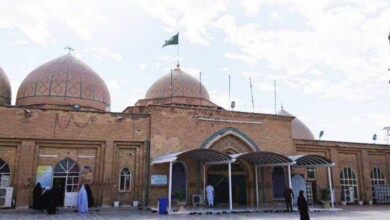Anas ibn Malik: The Prophet’s devoted servant & guardian of the Sunnah
Anas ibn Malik (RA) occupies a singular and revered position in Islamic history. Best known as the personal attendant of the Prophet Muhammad for an entire decade, his life offers a unique window into the Prophet’s household and character.
His extraordinary longevity and diligent memory transformed him into one of the most pivotal narrators of Hadith, making him a cornerstone in the preservation of the Prophetic example for all future generations of Muslims.
Anas ibn Malik was born in Yathrib (later known as Madinah) approximately ten years before the Hijrah (around 612 CE). He hailed from the Banu Najjar clan, a noble lineage within the larger Khazraj tribe, who together with the Aws, were the Ansar (Helpers) of Islam.
His mother was Umm Sulaym bint Milhan, a woman celebrated for her intelligence, unwavering faith, and strength of character. She was among the very first in Madinah to embrace Islam, demonstrating remarkable courage by converting while her first husband, Malik ibn al-Nadr (Anas’s father), was away from the city. Upon his return, Malik, who remained a polytheist, was enraged by her conversion and died shortly after, leaving Umm Sulaym to raise Anas as a single mother. She instilled in him the core tenets of Islam from his earliest years, teaching him the Shahadah before he had even met the Prophet.
A decade in the Prophet’s shadow
The most formative chapter of Anas’s life began shortly after the Prophet’s migration to Madinah. Recognizing a priceless opportunity for her son, Umm Sulaym brought the young Anas, who was about ten years old, to the Prophet and said, “O Messenger of Allah, this is my son Anas. He will serve you. Please supplicate Allah for him.”
The Prophet accepted him with open arms. For the next ten years, until the Prophet’s passing, Anas was his constant companion and servant. This was not a role of mere servitude; it was an intimate apprenticeship in faith, manners, and leadership.
Anas’ duties were varied: he would run errands for the Prophet, deliver messages, attend to his personal needs, and accompany him everywhere—to the mosque, to social gatherings, and on military expeditions.
The Prophet treated Anas with exceptional kindness and affection, often addressing him with endearing terms like “Ya Bunayya” (O my dear son). He never once scolded or struck him, even when Anas made mistakes. This nurturing environment allowed Anas to observe the finest details of the Prophet’s character—his humility, his generosity, his sense of humour, and his profound compassion towards children, women, and servants. The Prophet even entrusted Anas with some of his personal secrets, a testament to the absolute trust he placed in him.
Participation in early campaigns
Due to his youth, he was not permitted to fight in the early battles of Badr and Uhud. However, the Prophet allowed him to participate in a supportive capacity; during Uhud, Anas helped provide water to the wounded Muslim soldiers.
As he grew older, he actively joined the later military expeditions of the Prophet. He witnessed and participated in pivotal historical moments, including the Treaty of Hudaybiyyah—where he was among those who pledged allegiance under the tree (Bay’at al-Ridwan)—and the eventual Conquest of Makah. After the Prophet’s death, Anas continued to serve the Muslim cause, participating in the wars of apostasy (Ridda) during the caliphate of Abu Bakr (RA) and in further conquests.
Intellectual Jihad and preservation of the Sunnah
Following the passing of his beloved mentor, Anas ibn Malik’s role transformed. He embarked on what is known as “Al-Jihad al-Ilmi” (the intellectual struggle), dedicating the remainder of his long life to preserving and disseminating the knowledge he had so carefully accumulated.
His contributions to Islamic scholarship are nothing short of monumental:
Prolific narration: Anas narrated a staggering 2,286 Hadiths, a number surpassed only by a handful of companions like Abu Hurairah. His narrations cover every aspect of life, from acts of worship to personal conduct, providing an invaluable resource for Islamic law and spirituality.
Founding a school of knowledge: He settled in the city of Basra (in modern-day Iraq), which became a major center of Islamic learning largely due to his presence. His home was transformed into a university, where seekers of knowledge would flock.
Mentor to great scholars: He was the primary teacher for the next generation of illustrious scholars, including Al-Hasan al-Basri, Ibn Sirin, and Qatada ibn Di’amah. Through these students, his knowledge permeated the Islamic world and influenced the development of theology, law, and spirituality.
A living link: His lifespan of over 100 years made him a crucial bridge between the era of revelation and the succeeding generations (the Tabi’in). People would travel great distances to hear a Hadith directly from the man who had served the Prophet for a decade.
Anas ibn Malik (RA) passed away in Basra around 93 AH (712 CE), at the remarkable age of 103. He was the last of the prominent companions of the Prophet to die in Basra. His death marked the end of an era, closing the living connection to the daily life of the Prophet for many Muslims.




